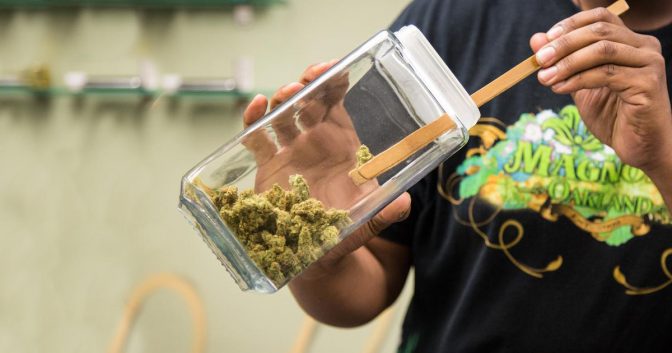On Bans and Taxes: California Hits a Few Speed Bumps

Among the nine states that have legalized the adult use of cannabis, California has the largest population and agricultural base. Adding recreational-marijuana sales to the state’s long-legal medical-use industry is expected to generate $3.7 billion in sales by the end of 2018.
Under the Control, Regulate and Tax Adult Use of Marijuana Act, the law enacted by the Proposition 64 ballot initiative in 2016, the state Bureau of Cannabis Control and the Departments of Public Health and Food and Agriculture issued more than 400 temporary licenses to retailers, distributors, microbusinesses, testing labs and event organizers, so cannabis businesses could be ready for commercial sales on January 1.
Five months later, the number of jobs in cannabis-related businesses and government agencies has increased exponentially. California has been issuing an average of 50 cannabis licenses per day, according to Cannabiz Media License Database. The initial licenses went to cultivators, dispensaries, retailers and manufacturers, and 15 companies hold 10% of the first 1,000 issued. Most of these companies had already been conducting business and were looking to expand.

California State Sen. Ricardo Lara (D-Long Beach) wants to allow cannabis deliveries in cities where retail shops are banned.
There are still plenty of hurdles to overcome. Prop 64 gave local governments the authority to regulate or ban commercial cannabis, and more than 20% of California communities have chosen the latter option, including the Central Coast between San Luis Obispo and Santa Barbara, the Central Valley and the rural and desert east. Industry officials say those bans harm patients and deny the will of voters. SB 1302, a bill introduced by state Sen. Ricardo Lara (D-Long Beach), would allow cannabis deliveries in communities with local bans.
California currently has one of the highest cannabis tax rates among states where adult use is legal. In some areas, the total tax rates are as high as 45%. When that makes black-market marijuana cheaper, the legal market struggles. Assembly Bill 3157 would reduce the state excise tax on cannabis from 15% to 11% and suspend a separate tax on cultivation. These are all changes that need to be made.
This article appears in Freedom Leaf Issue 32. If you enjoyed this article, subscribe to the magazine today!
Related Articles
Arcview Predicts $7.7 Billion California Cannabis Market by 2021
In Defense of Weedmaps’ Fight with California
Ngaio Bealum on Recreational Legalization in the Golden State
Equity in Oakland: Giving Minorities a Chance

